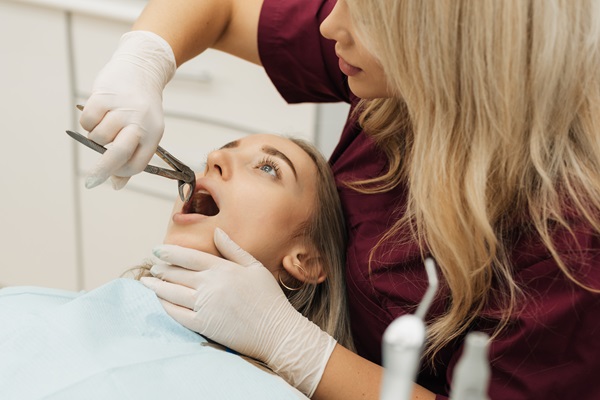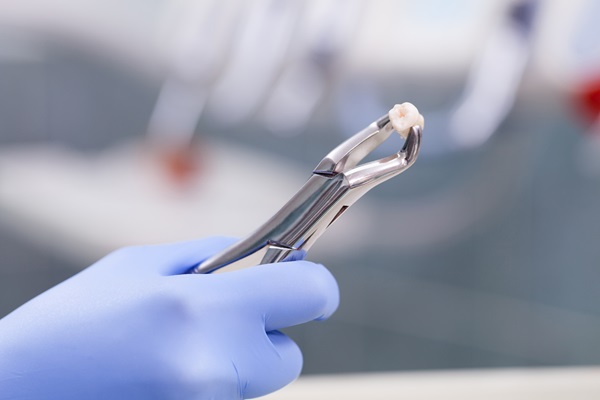A Guide to Surgical Tooth Extractions by Oral Surgeons
A may be a result of multiple issues. Teeth are not like other bones in the body that can heal to their original strength with time and a cast. While there are certain restoration techniques for damaged teeth, a surgical tooth extraction from an oral surgeon can be the most effective option for preserving the patient's oral health. In many cases, surgical tooth extraction is also the first phase of receiving artificial teeth and restoring a smile.
An Overview of Surgical Tooth Extractions
Reasons for a surgical tooth extraction
The oral surgeon will recommend a surgical tooth extraction for any decay or disease completely overtaking the tooth. They will also consider it for teeth that fracture below the gum line or are impacted. Impacted teeth are those that cannot emerge above the gumline. While this condition can happen to any tooth, it is most commonly associated with wisdom teeth.
Preparing for a surgical tooth extraction
Determining whether a patient needs a surgical tooth extraction will boil down to the results of an X-ray and physical examination. An X-ray will determine the extent of the damage caused to the tooth by a fracture, impaction, or decay. While the oral surgeon can instantly determine if the tooth is salvageable using images for a fracture, decay-caused damage requires further testing. The oral surgeon will likely perform vitality testing. Vitality testing lets the oral surgeon know if the tooth is alive or dead due to the blood flow and nerve activities. It involves placing a cold stimulus on the tooth and waiting to see if the patient reacts. If not, the tooth is considered dead and will need extraction.
After determining if a surgical tooth extraction is necessary, patients must schedule a separate appointment. The oral surgeon will discuss the type of anesthesia they will employ during the procedure. That way, if the patient is unable to drive home afterward, they can arrange an appropriate ride. They will also review more specific instructions, such as prescriptions, diets, and when the patient can return to school or work.
What to expect during a surgical tooth extraction
A surgical tooth extraction can be simple or intricate depending on the state of the problem tooth. After employing the previously discussed anesthesia, the oral surgeon will make an incision in the gumline, exposing the tooth. The tooth is not fused to the jawbone but must be released from the periodontal ligament fibers holding it up. This area is the bony tooth socket holding it in place. The oral surgeon will then remove the tooth and, if necessary, all the tiny bone particles using forceps.
Some patients may require ridge preservation depending on the tooth restoration they choose at a later date. A ridge preservation ensures the underlying jawbones do not deteriorate during healing. To finish, the oral surgeon will apply dissolvable or traditional sutures and gauze to suppress the bleeding.
What to expect after a surgical tooth extraction
Considering surgical tooth extractions are outpatient procedures, patients will return home the same day. They will feel numb for a few hours afterward but may feel some discomfort in the days following the procedure. The oral surgeon will likely require patients to schedule a follow-up appointment to assess healing and discuss replacement options.
Call us for more information
A surgical tooth extraction may be the last step to ensure the integrity of your oral health. If you believe you require the procedure or have been experiencing tooth pain, wisdom teeth eruption, or fractures, contact our office to schedule an evaluation.
Request an appointment here:https://brighton.drjstearns.com or call Platte Valley Oral Surgery at (303) 997-0223 for an appointment in our Brighton office.
Check out what others are saying about our dental services on Yelp: .
Recent Posts
You might have heard the term “wisdom tooth extraction” often. However, you might not know that every type of extraction does not require surgery. Some kinds only require a simple procedure. Keep reading to find out more about what a wisdom tooth extraction from an oral surgeon involves.In many cases, the wisdom teeth can be…
Corrective jaw surgery (also called orthognathic surgery) is performed by an oral surgeon to correct different forms of skeletal and dental issues, including jaw and teeth misalignment. The aim is to improve oral functions such as breathing, speaking, and eating. Although the surgery may improve the appearance of the patient's teeth significantly, corrective jaw surgery…
If you are experiencing symptoms like jaw pain and stiffness, TMJ disorder might be the problem. This disorder can have a significant impact on your physical and mental health. The condition generally worsens without treatment. A TMJ specialist is a trained and experienced professional who offers treatment for TMJ disorders. Continue reading to find out…
Bone grafting is a minor surgical treatment done under local anesthetic to replace depleted bone tissue. The grafting material may be inserted into a tooth socket just after a tooth is removed or at a location where a tooth has been absent for an extended period. Over the next few months, your body will produce…


